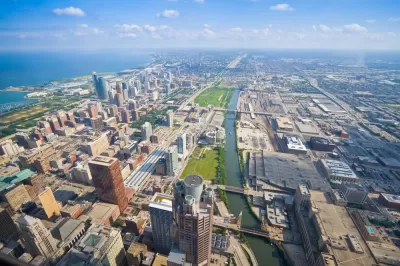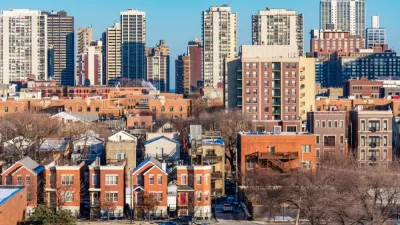In Cook County, which contains the city of Chicago and some of its suburbs, property values have been manipulated to disguise the value of homes, helping the rich at the expense of the poor (particularly poor minorities).

"For years the county’s property tax system created an unequal burden on residents, handing huge financial breaks to homeowners who are well-off while punishing those who have the least, particularly people living in minority communities," Jason Grotto reports for the Chicago Tribune.
This burden came from the County's Assessors’ office, which the Tribune's analysis found consistently overvalued homes in working-class minority neighborhoods like Little Village and North Lawndale, while underestimating the value of homes in rich neighborhoods like Glencoe, the Gold Coast, and Lakeview. Taxes are paid based on the assessed values, meaning, "People living in poorer areas tended to pay more in taxes as a percentage of their home’s value than residents in more affluent communities."
FULL STORY: An Unfair Burden

Planetizen Federal Action Tracker
A weekly monitor of how Trump’s orders and actions are impacting planners and planning in America.

Chicago’s Ghost Rails
Just beneath the surface of the modern city lie the remnants of its expansive early 20th-century streetcar system.

San Antonio and Austin are Fusing Into one Massive Megaregion
The region spanning the two central Texas cities is growing fast, posing challenges for local infrastructure and water supplies.

Since Zion's Shuttles Went Electric “The Smog is Gone”
Visitors to Zion National Park can enjoy the canyon via the nation’s first fully electric park shuttle system.

Trump Distributing DOT Safety Funds at 1/10 Rate of Biden
Funds for Safe Streets and other transportation safety and equity programs are being held up by administrative reviews and conflicts with the Trump administration’s priorities.

German Cities Subsidize Taxis for Women Amid Wave of Violence
Free or low-cost taxi rides can help women navigate cities more safely, but critics say the programs don't address the root causes of violence against women.
Urban Design for Planners 1: Software Tools
This six-course series explores essential urban design concepts using open source software and equips planners with the tools they need to participate fully in the urban design process.
Planning for Universal Design
Learn the tools for implementing Universal Design in planning regulations.
planning NEXT
Appalachian Highlands Housing Partners
Mpact (founded as Rail~Volution)
City of Camden Redevelopment Agency
City of Astoria
City of Portland
City of Laramie





























